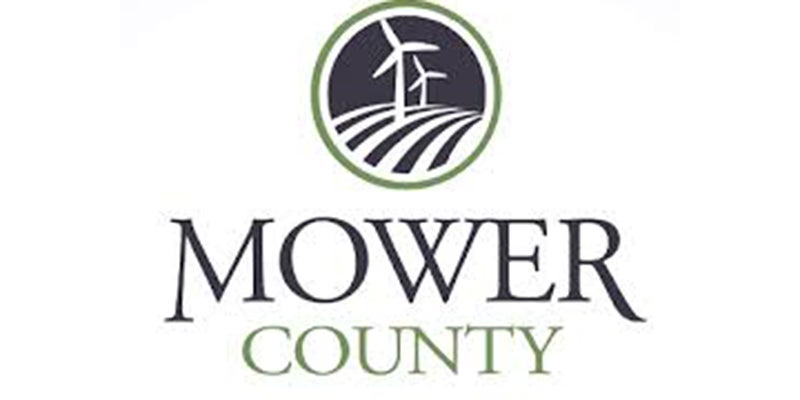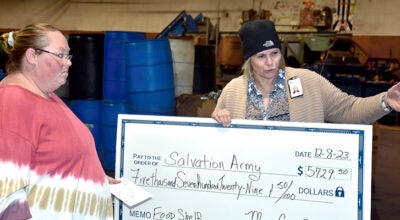Mayor candidate Q&A: Making Austin a welcoming community
Published 7:01 am Wednesday, August 5, 2020
|
Getting your Trinity Audio player ready...
|
Author’s note: This is the final feature the Herald will run prior to the August primary in which Austin’s 2020 mayoral candidates answer questions on issues that affect Austin residents. For this feature, the candidates were asked questions about the City’s role in making Austin a welcoming community.
Here are their responses.

Brian Heimer
1. How do you believe Austin benefits from being a welcoming community?
King: A welcoming community models inclusivity and provides a level of comfort to all residents whether they’re here for a moment or a lifetime. I believe the City of Austin chose to be innovative years ago in making sure our newest residents feel welcomed and we continue to do so today. We have fostered and supported our strong Welcome Center and our robust Human Rights Commission continues to initiate creative ways to connect all citizens, which allows us to engage with and learn from our newcomers. In return, the city has grown its tax base through housing sales, small business creation and becoming the city where people choose to live and work. Moreover, a welcoming community should not only be measured monetarily. The benefit one gets from feeling valued, connected and accepted is immeasurable and certainly allows everyone the opportunity to thrive in a culture of community.
Austin: By being a welcoming community, it signals to those looking to locate or relocate that Austin is a place they can come and be a part of the community. Thus, when they do come here, we benefit by growing our population, gaining needed members of the workforce and increasing the enrollment in our schools. This in turn makes Austin a stronger and better community for all.
Heimer: All communities benefit from the diversity of their people, businesses, and services. The incorporation of groups not traditionally associated with Austin helps elevate our understanding of each other and the world in general. We can find ways to work together so that we can grow our economy, open more businesses, and live the American Dream.

Steve King
I’m reminded of my first combat tour while in the Marine Corps. We were ambushed by the enemy and had to take cover. While we were returning fire and moving our heads up and down looking for the enemy, one of the other squad leaders whispered under his breath, “Agarrar fuera de base.” I asked what he was talking about and basically, in very colorful English, he said that we were caught off guard.
I am reminded of that day when I’m asked, “How can we make Austin better?” In those moments, it wasn’t the color of our skin or the religion we believed in. It was that we are Americans. The strength of America is our diversity, and that is the strength of Austin. Let’s not be caught off guard, but be prepared to make our community stronger for all of our residents.
2. In its 2017 Welcoming Report, the Austin Human Rights Commission cited lack of interaction between ethnic groups as the biggest barrier to being a welcoming community. What role should the City play in encouraging interaction among the City’s many ethnic communities?
King: I feel the City’s role with regard to this topic is to provide access for residents to engage with others in our diverse community and create a path for business opportunities. The Human Rights Commission as a commission of the city does amazing work to bring folks of all backgrounds together. Their efforts to make Austin a welcoming community for all is to be praised and celebrated. But the real effort is born by each and every one of us as Austin residents and human beings. Interacting with people who might not be like us or come from different places in the world is personal. We all should challenge ourselves to be inclusive, friendly, neighborly, or whatever you choose to call it. This individual effort will do far more good in breaking down barriers than any governmental unit anywhere can do.

Jeff Austin
Austin: The City should continue to seek out persons interested in serving as Honorary Councilmembers as well as identifying members of the multicultural community to serve on boards and commissions. The City also needs to be involved in events that cause or promote interaction between the many groups in town. This involvement can take many forms, from hosting an event(s) to providing awareness of events on social media and other outlets to providing funds for events to increased activity of the Human Rights Commission. The City has also seen an increase of the use of our parks by everyone in the community. By providing and maintaining these areas, we are giving the many different cultures and people of the community places where they can gather informally and get to know one another better.
Heimer: The City’s responsibility is to create an environment where people are safe and business can flourish and provide the appropriate infrastructure. What needs to happen is a clear understanding of what other organizations capabilities and responsibilities are.
For example, the Chamber of Commerce is best positioned to tackle this issue of interactions between ethnic groups and making our community more welcoming. They are much better suited to create events, outreach, and initiatives. Then, if needed, present to the City Council any actions they feel would help grow or create business within the community.
The Chamber of Commerce is a very well organized and interconnected group of all of the businesses in the community; what a great resource. Let’s define the role of each of the organizations within the community and meet to address and to empower them all to collaborate and quickly address these issues.
3. While the City has shown initiative with programs like the Honorary Councilmember position, what other steps should the City take to involve multicultural leadership?
King: I know that conversations are happening every day in Austin that center around having leaders in Austin mirror our diversity. The addition of the honorary councilmember is a great start as it allows that person the ability to feel comfortable in a space that might otherwise be intimidating. From this effort, the Council is hoping to create leaders from our diverse community. As job openings come up, our city department heads are encouraging and looking for diversity to add to our list of dedicated employees. APEX Austin is a vast group of folks from all different disciplines and ethnic backgrounds who strive to bring attention to this effort. The conversations and initiatives that come out of this group are encouraging. Much work is being done on this front and I’m confident we will continue to see positive results.
Austin: I think the Honorary Councilmember program has been a good first step, especially since a former participant has filed to run for office! I think we can also encourage honorary councilmembers to get involved on other boards and commissions as well. Just with this program alone, it has opened the lines of communication and caused interaction between leadership groups and ethnic groups.
Heimer: The Honorary Councilmember position is a lackluster pat on the back for members of our community; a symbolic gesture with no real clout or influence. During this time, rather than hand out participation trophies or positions, let this be a call to action, including myself. I’m tired of the same six or seven people driving the direction of our community. Clearly those who have wanted to be involved are, and to create an illusion of inclusion, have created a “honorary” position.
So to create multicultural leadership, we must physically leave the confines of the City Council building and have the City Council meetings within the community we are to serve. Let us actually get up and go out into the community, not just symbolically “reach out,” but actually go out into the community and meet with people on their terms, not ours.
All members of our community contribute in their own way. We need to be aware of this and receive it as it comes to us, not make the citizens fit into our little box of how we used to do things. We need to change to meet the needs of the future.
4. Anything else you want to add?
King: Being a welcoming person is something I strive to be each day. I’m one to make an effort to see that everyone is included and valued as I move about this community. I see the good folks of this city doing the same. Austin is a diverse community and we continue to grow from this diversity. Our youth and high school sports teams were recently highlighted in the Minneapolis Star Tribune for being just such a community. I’m inspired by the effort of our youth and our citizens and am determined to continue to make Austin a welcoming community.
Austin: When I was first elected to Council over 14 years ago, immigration was an extremely hot topic, in a negative way. At the time, it was thought to take a generation or two for assimilation to occur and for relations to be better between cultural and ethnic groups. I think we have come a long way in overcoming the negatives of the past. This does not mean we are where we need to be. I think this is an ever-happening, ever-evolving process. I think the progress we have made speaks well of the goodness and nature that is at the heart of our community. Austin is a welcoming community!
Heimer: I want to thank you all for taking the time to become a well informed voter. Too often we, including myself, have simply voted for a candidate we’ve heard about, but don’t really know how they feel about the issues that matter to us. So, if you think the other candidates will make your community one you will live in, grow in, and return to one day, then vote for them. But if you’ve learned that my positions and objectives align better, vote for Brian E. Heimer.




